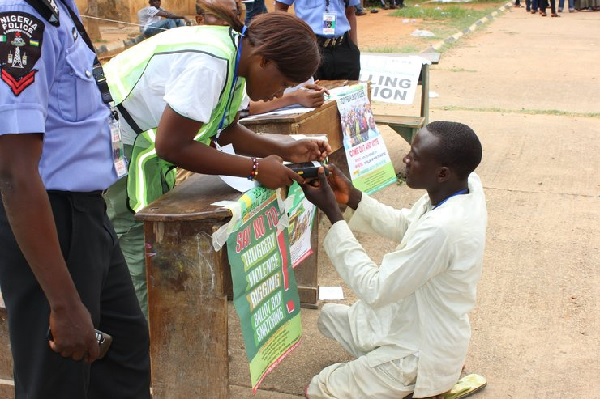Voter education is vital to the integrity of elections. Through voter education efforts across Nigeria, millions of eligible voters will have the opportunity to get relevant information on what they need to know about the election and their rights and responsibilities in the electoral process. The contribution of voter education in Nigeria is tremendous to the electoral process. In this article, the importance of voter education in Nigeria will be discussed.

The importance of voter education in Nigeria will be outlined below:
-
Encourages Electorates to Vote on Election Day
A major challenge experienced during elections in Nigeria is the problem of low voter turnout on election day. In the 2019 INEC general elections, there were 84,004,084 registered voters but the voter turnout was just 49.78% – less than half of the eligible electorate. Voter education is a strategy that can be employed to encourage voter participation in elections in Nigeria.
Through voter education, the voters receive awareness of the importance of voting and why they need to participate in the elections. At the time of writing, it is estimated that 105,841,979 people in Nigeria are above the age of 18. So, increased voter education efforts in Nigeria will go a long way in improving the voter turnout in the forthcoming 2023 INEC general election.
-
Create Awareness of Eligibility of Voters
One important role of voter education in Nigeria is to create awareness of what makes a citizen eligible to vote or ineligible. Voters are provided with relevant information on what to do to be able to vote, and what could make them unable to vote on the day of the election. During voter education programs, the voters are instructed to go to the specific polling units where their names came out on the voters’ register. During voter education programs, the voters are advised to go along with their permanent voter’s card (PVC) as temporary voters card (TVC) cards will not be accepted.
-
Creates Awareness of Rights of a Voter
One of the rights of every Nigerian, embedded in chapter four of the 1999 Constitution of the Federal Republic of Nigeria, is the right to vote. Many times, the electorate does not know what exactly their rights are concerning the electoral process. To this end, voter education exercises are important in the awareness of voters’ right to the electorate who are ignorant or unaware.
The voters’ education will make voters aware of the following rights they have as regards the electoral process, which includes, the right to register, right to vote, right to recall an elected representative, right to information about the election, right to privacy when voting, and the right to attend political rallies and campaigns. When voters know their rights, they will not be easily swayed and will demand the integrity of the electoral process.
-
Creates Awareness of Voters’ Responsibilities
As there are typically no rights without responsibilities, through voter education, the electorate must know what is required of them before, during, and after the electoral process. When the electorate knows and adheres to these responsibilities, it can contribute immensely to the success of the election. Therefore, voter education makes sure the voting population knows what’s expected of them during the entire electoral process.
The voter education exercise will provide relevant information on the voters’ registration. The voter education exercise will provide the voters with information on how to go about voter registration, including the procedure to change polling units from one part of the country to another.
In addition, voter education creates awareness on how to correctly cast votes. When voters aren’t instructed on how to properly cast their votes, they usually do it wrongly, hence making such a vote invalid. Voter education thus seeks to reduce the likelihood of such preventable mistakes from happening.
-
Creates Awareness of Electoral Offences and Penalties
To ensure that the election is peaceful, fair and free there are guidelines put in place per the Electoral Act 2010 (as amended) and the Independent National Electoral Commission (INEC) Regulation and Guidelines for the Conduct of Elections. Section 117 to 132 of the Electoral Act 2010 (as amended) outlines electoral offenses and associated penalties for defaulters.
It is therefore the role of voter education to educate voters on how to conduct themselves to prevent the occurrence of electoral offenses. The electorate, through voter education awareness programs, will get to know what constitutes electoral offenses, and their penalties. The offenses according to the Act include snatching or destroying a ballot box, acting or inciting others to act in an unruly manner, threats on political aspirants, preventing the exercise of the right to vote through abduction or duress, forging or destroying a nomination paper or result form, providing false information during registration, multiple registrations, impersonating a registration officer, and forging a registration card, among other offenses. The penalties for each of these offenses are also made known to the voting population through voter education.
-
Offers Helpful Information on How to Transfer Polling Unit of Registered Voter
Situations might occur that can take a voter away from the constituency where he/she had registered in the previous general election. But, most times, the voters do not know how to apply for their previously registered constituency to be changed. In ignorance, the voter may decide to register in their new place of residence. However, this action of intentional multiple voter registration is an offense against voter registration, as stipulated by Section 117 of the Electoral Act 2010 (as amended). A voter who defaults is likely to face a fine of N100,000 or imprisonment for up to one year or both.
Through voter education, voters can receive relevant guidelines on how to transfer from one registration centre to another. The voter would learn how to apply for the transfer and what documents to attach alongside the application.
INEC organizes several voter education campaigns nationwide. There are INEC Youth Ambassadors which are charged with carrying out voter education across Nigeria.